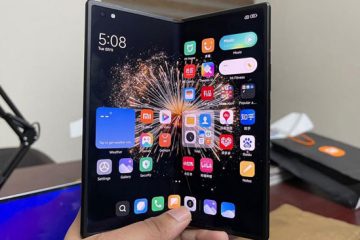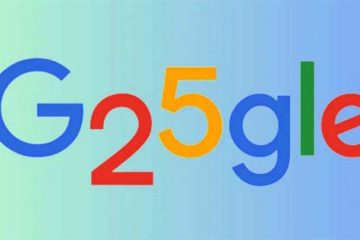Speed of Internet now as slow as a snail
The absence of guidelines to ensure a fixed subscriber base under a certain bandwidth (Internet speed) has prompted internet service providers (ISPs) to provide too many connections, which has resulted in decreased speed at the subscriber’s end.
Officials of Bangladesh Telecommunication Regulatory Commission (BTRC) said they have fixed a condition ratio for the ISPs at 1:20, which means, a maximum of 20 lines could be distributed per Mbps bandwidth.
But admitting that there are no written guidelines for this, BTRC officials say the ISPs don’t abide by the condition ratio and there is no surveillance by any authority on the ISPs to monitor their practices. India, on the contrary, has a commissioned condition ratio of 1:4 for the ISPs, where four subscribers share one Mbps bandwidth.
With the sole objective of making the Internet available to the masses, BTRC on July 28 this year reduced the monthly rental for leased Internet access through the submarine cable.
However, despite the regulator slashing the bandwidth prices by 16 per cent (from Tk. 12,000 to Tk 10,000 per Mbps) and promising to provide 20 per cent extra bandwidth, people are still stuck with slow Internet speed.
Earlier on 27 January the government reduced the price of per Mbps bandwidth from Tk. 18,000 to Tk. 12,000. Several individuals complained to The Independent that the ISPs were cheating on them.
“When I planned to take the Internet service, a local ISP named ‘Smile’ showed various packages and price tags to me. I took one of the packages (512 kbps browsing speed and 40-50 download speed), and when it was installed; the line had the promised speed, but within a week the speed started decreasing,” Sajib Raihan, a resident of Azimpur said.
“When I repeatedly asked my ISP about the decreasing speed, they said it would be fixed. But it was never repaired, so I terminated the service after two months,” he said. Arif Atiq, a student living in Dhanmondi made a similar complaint. Every day I saw a van of Qubee (one of the two wireless service providers of the country) parked by the side of the lake. They were offering lucrative packages, so I took one. “But the Internet speed started decreasing gradually. The worst part is, during times of need the line is always down for a longer time,” he said.
ISPs have their own explanation in defence. “The government has reduced per Mbps bandwidth prices but ISPs are also being ordered to get connected with the Nationwide Telecommuni-cation Transmission Network (NTTN),” Emdad Hossain, an ISP owner said. Hossain said that ISPs now had to pay Tk. 2 per meter to the NTTN for the Internet line.
“With that, our cost has increased manifold. So we try to accommodate as many subscribers as possible within a certain amount of bandwidth,” he said. FM Rashid Amin, joint secretary general of the Internet Service Provider Association (ISPA) told The Independent that only 50 ISPs were operational now as the others couldn’t sustain the heavy losses.
“As many as 210 companies had the license of ISPs but now not more than 50 are functioning.
Within 2015, another 20 will be out of the market if the government doesn’t take any rational policy,” he said. Explaining the ISPs’ view, he said the profit in the business was turning out to be very low.
“If a customer is promised 256 Kbps for Tk. 1,000 per month, it is impossible as ISPs are paying Tk. 10,000 to the International Internet Gateways (IIG) for 1 Mbps. So, for giving a customer 256 Kbps at Tk. 1000, an ISP has to subsidize Tk. 1,500 per month,” he said. “I am only counting the raw cost of bandwidth, and not the operational cost of the ISPs,” he added.
Amin said the government had told the ISPs to get connected with the NTTN.
“For a developing country like Bangladesh, the government should lay out NTTN itself rather than asking the private players to do it.
“The rate of Tk. 2 per metre of line is too much to bear for small ISPs. I personally have to pay Tk. 16 lakh per month to the NTTN for my company’s network. If the NTTN is spread across the country then I have to pay Tk. 30 lakh per month, which is too much,” said Amin who is also the owner of Link3, one of the big ISPs of the country.
“I have about 8,000 subscribers and most of them are corporate, so I am still in the business. But the small ISPs who mainly deal with residential lines cannot cope with this huge cost,” Amin added.
Meanwhile officials from the two NTTNs — Fiber<\@>homes and Summit Telecommunications said that getting connected with the NTTN would reduce the cost of the ISPs in the long run, as at present almost 70 per cent of the revenue of the ISPs were spent on operational cost including manual repair of broken transmission lines.
Abbas Faruq, head of public affairs at Fiber<\@>homes, told The Independent that they were here to do business. “The ISPs are saying that getting connected with the NTTN is costly for them but what about us, we are paying Tk. 15 to 20 lakh (depending on the geographical location) to lay out one km of cable and our recovery period is estimated to be 10 years,” he said. Faruq informed that his company had already established 400 kms of cable network in the capital.
“Fifty-six ISPs, six large cable operators and four mobile phone operators — Grameenphone, Banglalink, Citycell and Robi — are using our network at present,” he said.
“ISPs should come under a common underground duct as it would cut their massive operational costs. Now the cost seems high but in future, there will be a win-win situation” Faruq added. Arif Al Islam, CEO of Summit Telecommunications, echoed Faruq’s claims:
“We have so far established 120 km of underground cable network in Dhaka and 28 ISPs, two large cable operators and Airtel use our network at present.”
According to Al Islam, many ISPs and cable operators are yet to realise that going underground would be much more beneficial to them in the long run. “Before we entered the market, ISPs were charged at Tk. 250 per metre for getting connected with the NTTN. We made it possible to reduce the amount to Tk. 2 per metre by creating a competitive environment,” he said.
“This is pretty fair if you consider the fact that operators do not need to spend anything at their client service end, as we monitor and repair the line when an operator uses our service,” he added.
Talking with The Independent, Monwar Hossain, managing director of Bangladesh Submarine Cable Company Limited (BSCCL), custodian of the country’s lone fibre optic cable SEA-ME-WE-4, said that the Internet speed had decreased as the government did not have a guideline for distribution of bandwidth.
“As a wholesaler, we buy the Internet bandwidth from the submarine cable consortium. Currently we buy it from two channels, one via Singapore and another one via Italy,” he said.
Monwar said that from the consortium, BSCCL bought 22 gigabytes (GB) although 44.60 Gb was allocated for it from the consortium.
“We sell the bandwidth to Bangladesh Telecommunication Company Ltd (BTCL) and Mango Teleservices, the two international Internet gateways (IIG) of the country,” he further said. “BTCL and Mango act as the wholesaler for the ISPs. We can’t utilize the full 44.60 GB as the two IIG don’t find the ISP market big enough to sell that much bandwidth,” he said.
Monwar added that the ISPs did not find the market lucrative enough to maintain a fair ration while distributing the bandwidth. “So they try to get as many subscribers as possible within a certain amount of bandwidth to hit profit. As a result, customers have a slow Internet speed,” he said.
“The Internet market of the country is still in its nascent stage so the ISPs are given much freedom to expand the subscriber base in the first place. But the government has plans for the future. Six companies are recently given the licence to lay out an international terrestrial cable (ITC). After the installation of ITC, the Internet speed would increase rapidly,” said BTRC director general Rezaul Quader.
-With The Independent input











